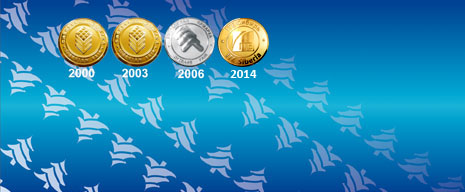 |
 |
Research quest
The Battle of Stalingrad as a Symbol of the Radical Change of Military Consciousness of the USSR
In this article, the author introduced the term "radical change of military consciousness" to explore significant changes ^ in the state of national consciousness of the USSR during the Great Patriotic war of 1941-1945. Previously, we analyzed у the crisis of national consciousness of Russia, expressed in the form of division and civil conflict. This crisis has created ^ a crisis of military identity, which was the systemic reason of the defeat of the Russian and Soviet armies in several wars ^ of the XIX and XX centuries.
Civic identity as a social phenomenon: historical-philosophical and philosophical and educational aspects
The article deals with the history of philosophy and the philosophical and educational aspects of civic identity, q actualized through the prism of the phenomenon of society mentality in modern Russian education — in the context [U of education-standards requirements. The author attempts to analyze the structure of civic identity, to identify the S essential components that make up the foundation of this phenomenon and concepts. Comprehend the views of philosophers of different epochs dealt with in his writings civil issues.
Philosophical Grounds of National Identity
The article deals with the philosophical and methodological foundations of national identity as a multi-level social and cultural phenomenon. Allocated national government national and ethnic and national-regional aspects. The ^ phenomenon of the "dialogue of cultures" — in the context of the mental approach, developed by the author, — is I- represented as in the socio-group and individually-personal dimensions.
Digital InfoSpace and its Characteristics
In the article we research important characteristics of the digital infospace. We give the main ways of understanding the concept of digital infospace and related to it terms. Digital infospace qualities are characterized.
Keywords: digital infospace, digital infospace characteristics, numerical representation, modularity, automation, variability, transcoding.
The Complexity of E-learning
In the article we present some ways to increase the efficiency of the educational process through the introduction of e-learning tools combined in software methodological complex, which is considered as specialized knowledge base, and developed for the future specialists to solve applied tasks by means of ICT.
Keywords: ICT, competence, learning tool, software methodological complex, specialist.
Using Information Technologies for Organizing Students’ Research Activities at the Lessons of Mathematics at Small School
In the article we discuss the possibility of providing methodological help to a teacher in a small school. We present a model of technological structuring of mathematics teaching process which is oriented on development of students’ research skills. A variant of implementation of individual approach to use information technology and Internet resources for involving students in research activities in mathematics is given.
Keywords: thinking activity, methodology of studying an object in mathematics, information technologies, small schools.
The Development of Media Competence of Primary School Students
In the article we present the conception and structure of media competence, and depict the problem of developing competent consumer and originator of media production. There are described our diagnostic tools for studying media competence and some results of their using. Moreover we give the review of experimental work for searching effective ways of developing media competence of primary school students at the lessons of literary reading.
Keywords: media education, media competence, primary school, critical thinking, media technology, development, media texts.
The Export of Educational Services of Classical University by Means of E-Learning and Distance Learning Technologies
In the article we describe the digital informational and educational environment of the Institute of Distance Education, Tyumen State University. We discuss the appeal of distance learning for foreign nationals and the possibility of promoting educational services of the classical university in the territory of neighboring countries.
Keywords: digital informational and educational environment, distance learning, the export of educational services, foreign students.
Evaluating Professional Competence of Future Primary School Teachers During Teaching Practice
In the article we substantiate the status of teaching practice in the system of higher education as a significant stage of training activities. The analysis of the literature on the issue of the organization of pedagogical practice of students is given. We present some materials and methods for evaluating the level of formation of professional competence of future primary school teachers.
Keywords: teaching practice, baccalaureate, young teachers of primary school, diagnostics of level of professional competence, competence-based approach.
Peculiarities of Teaching Foreign Languages to Postgraduate Students (with the Focus on Postgraduate Programmes in Education and Psychology)
- « первая
- ‹ предыдущая
- …
- 12
- 13
- 14
- 15
- 16
- 17
- 18
- 19
- 20
- …
- следующая ›
- последняя »
Сайт поддерживается в Новосибирском институте повышения квалификации и переподготовки работников образования и является участником Новосибирской открытой образовательной сети